“Crawl in,” said the witch, “and see if it’s hot enough to put the bread in.”
—Hansel and Gretel
All roads lead to rooms.
—Irish Proverb
a stark
Quake
a numb
Calm
*
clutching my Crumbl
ejumble
among
Tombs and
in Caves
my
Dream
Vision
Oarsman, oarsman,
Where have you been?
I’ve been to Leafy,
I’ve dismembered the Queen.
Oarsman, oarsman
What did you there?
I hid in a cleft,
I braided the air.
hearing our oars where their freed goatsteps sped
and are silent
by an extinct river
O Babylon when I lay down
alert for sliding cataracts
where in corridors the print of dancing feet
beyond poise I am prey
posing in snow-light
being of human form
clothed in the scales of a fish
Count him a magician
he controls the storm
walked on the sea shouting
that he is the Logos of God
that he is the Word original and first begotten
attended by power
upheld by his mother
(a very active gesturing baby)
what if Simon Peter Jesus himself
walked among the cold stone faces
shouting NIKA
emptyeyed blanksmiling
Swiftness divination these false gods
their commerce is the cloud
so they can learn what is preparing in the sky
Artificer of the universe
Magician who controls the storm
to see you in one spot
I count the clouds others count the seasons
Dreaming of archipelagos and the desert
I have lived through weeks of years
I have raked up fallen leaves for winter
after winter across an empire of icy light
Light of our dark is the fruit of my womb
or night falling through the reign of splashes
Liquid light that bathes the landscape in my figure
Clairvoyant Ireland
eras and eras encircled by sea
the barrows of my ancestors have spilled their bones
across the singing ear in hear or shell
as wreck or wrack may be in daring
There were giants on the earth in those days
feasts then on hill and fort
All night the borders of my bed
carve paths across my face
and I always forget to leave my address
frightened by the way that midnight
grips my palm and tells me that my lines
are slipping out of question
Divorce I manumission round
with a gentle blow the casting branch
my right hand My covenant
was garment concealed or mask or matron
Proceed with measured step
the field and action of the law
Like day the tables twelve
whip torch and radiate halo
sky brewing coming storm
Faraway over the hill
when Hell was harrowed
and earth was brought to heel
how the hills spread away
how the walls crumbled
deathcolored frozen in time
Where was the senatezone and horizon
Where are the peoplemountain of light to the east
Tell them I sail for the deep sea rest
a painless extraction a joyful day
bird of passage over all I love
Goodbye to all the little fir trees
of the future
faroff in the dread
blindness Iheardlight
eagerlyIstruckmy foot
against astoneand
raised a din at the
sound theblessed Paul
shutthedoorwhichhad
beenopenandboltedit




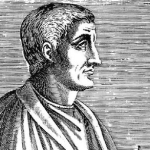




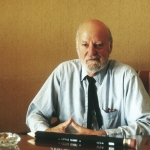
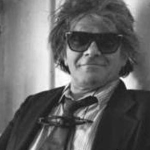


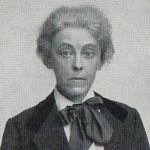



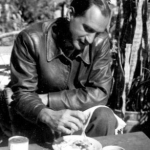
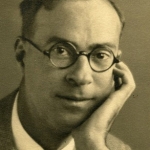
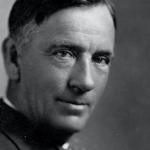
Comment form: